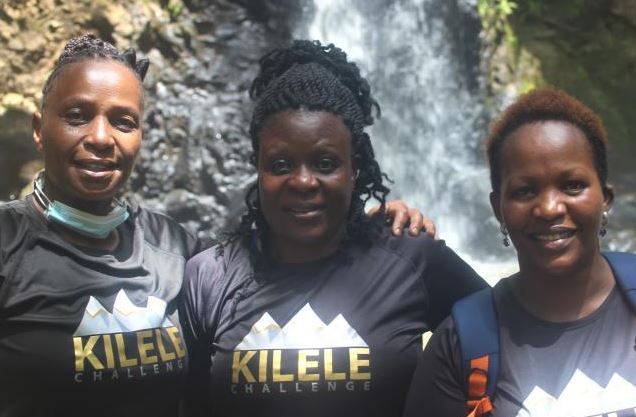×
The Standard e-Paper
Home To Bold Columnists

Cancer survivors Jane Mwihaki (L), Pamela Savai (C), and Kilele Challenge founder Benda Kithaka.
To Sydney Chahonyo, February is more than a month on a calendar. It reminds him of that day in February 2004 when he was diagnosed with post-nasal space cancer. He was just 19, an age where all his dreams and aspirations were just lining up.